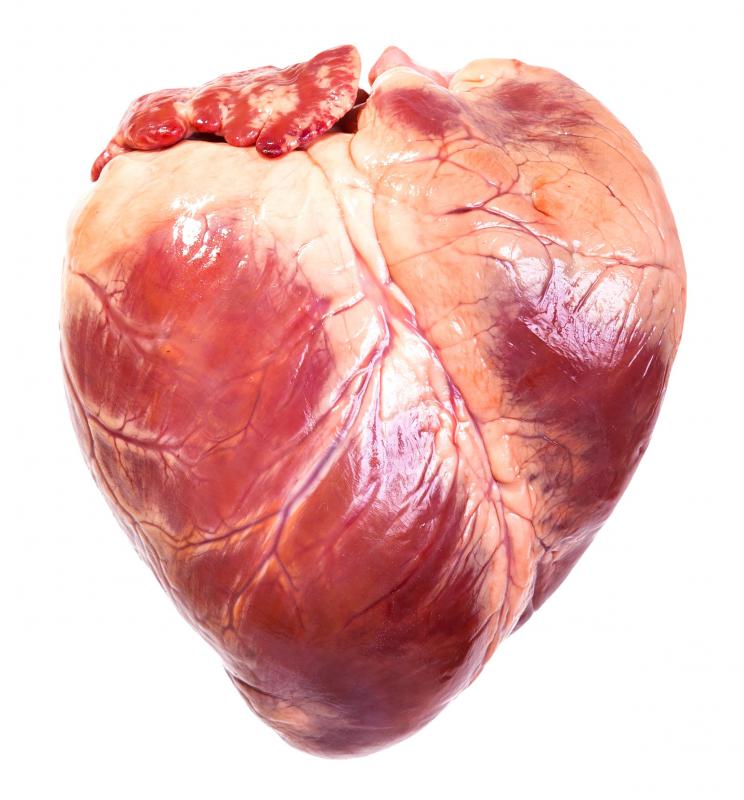At TheHealthBoard, we're committed to delivering accurate, trustworthy information. Our expert-authored content is rigorously fact-checked and sourced from credible authorities. Discover how we uphold the highest standards in providing you with reliable knowledge.
What is Kabuki Syndrome?
Kabuki syndrome (KS) is an unusual genetic condition characterized by the result it has on facial development. People with Kabuki syndrome have high, arched eyebrows, thick eyelashes, broad noses, and other structural features which cause their faces to resemble the full face makeup worn by Kabuki actors. At one time, Kabuki syndrome was known as Kabuki makeup syndrome, referencing this fact, but the “makeup” was later dropped because some parents found it offensive. The distinctive facial appearance of children with Kabuki syndrome can make it easy for the condition to be diagnosed, if a patient manages to see one of the few doctors who has experience with this genetic disorder.
The syndrome was first described by Japanese physicians Dr. Niikawa and Dr. Kuroki in 1981. It is sometimes known as Niikawa-Kuroki Syndrome for this reason. The doctors were unable to identify the chromosome involved in the manifestation of Kabuki syndrome, with later research suggesting that it may be the X chromosome, although as of 2009 this had not been confirmed. Kabuki syndrome is believed to be the result of a minor chromosome deletion.

Like many genetic disorders, Kabuki syndrome rarely presents itself in the same way. Most of the people affected have the distinctive facial abnormalities which gave the syndrome its name, and many experience developmental delays, unusually short stature, and behavioral abnormalities. Patients can also develop heart defects, urinary tract problems, abnormal dentition, hearing impairments, early puberty, seizures, and recurrent infections. These symptoms will not necessarily all appear, and some people with Kabuki syndrome lead relatively normal lives, needing minimal assistance, if any, to navigate the world.

This condition is not curable, but it can be managed. Early diagnosis is key, as it will allow a medical team to start evaluating the patient before major problems emerge. Full evaluation includes tests to check endocrine function, ultrasound imaging studies to look for abnormalities in the organ systems, and neurological assessments to determine whether or not the patient's brain is involved. The results of these tests can be used to develop a treatment plan to support the patient as he or she grows up.

Parents with a child who has been diagnosed with Kabuki syndrome may want to meet with a geneticist. The geneticist can perform testing to look for other genetic abnormalities, and he or she can talk with the parents about long-term management of Kabuki. Parents should keep in mind that genetic abnormalities like Kabuki syndrome are not their fault.
AS FEATURED ON:
AS FEATURED ON:














Discussion Comments
@JessicaLynn - I don't doubt that people with kabuki syndrome attract a lot of stares from strangers.
I think it's especially cruel this disease can have other symptoms besides just the facial features. Imagine having to deal with the dramatic facial features as well as say, heart issues? I think that would be a lot to handle!
Wow I really feel for people with this syndrome, especially kids. It's definitely not helpful that there is an exaggerated style of theater makeup that resembles this disease.
I imagine people might sometimes think that patients with kabuki syndrome purposely did their eyebrows like that. I wonder if people with kabuki syndrome ever get mistaken for actors? Either way it sounds like it could be a really stressful illness to have.
Post your comments